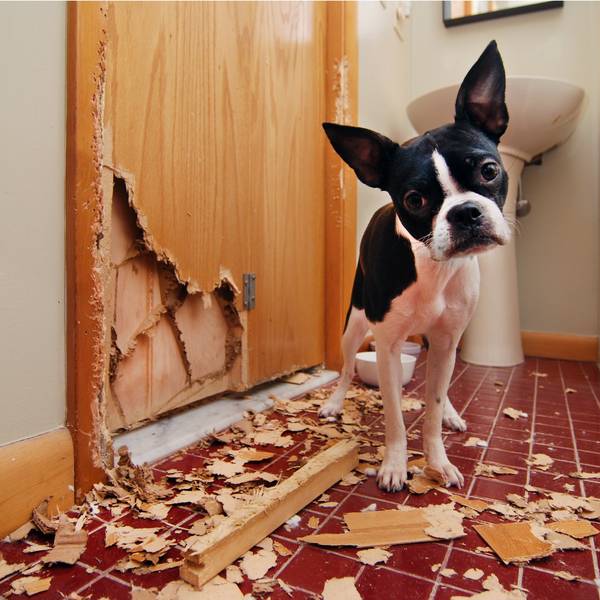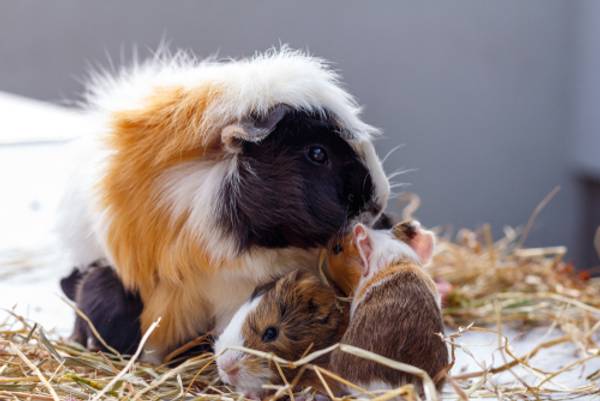Separation anxiety is becoming a fairly common disease amongst companion dogs.
It is debilitating for those dogs affected, and also makes working life full of guilt for pet owners. We recently read a few articles on this topic, and thought we would provide a short run down of the suggested causes, symptoms and solutions. The definition of anxiety is the experience of fear and distress in the absence of any genuine threat to safety, meaning that if your dog is displaying signs of distress when there is no obvious trigger, there is a problem. Distress signs include:
-
Destruction
-
Barking, howling, whining
-
Inability to sit still
-
Jumping or scratching at doors
-
Urinating, vomiting, or diarrhoea
-
Avoiding food and drink
-
Excessive and irrational yawning, licking, or scratching
It is normal for dogs to love spending time with us, and vice versa, however problems arise when the animal starts to become dependent. As outlined in a recent article by Australian Dog Lover, "over the previous 15,000 years of co-evolution with, and domestication of dogs,we have subconsciously selected animals who are highly social and highly dependent on us." To fulfil our own emotional needs, we are choosing pets that need us.
There are different types of separation anxiety, which can arise from a series of situation;
-
Attachment based anxiety This is when the animal is not calm unless in the presence of a particular person or fellow animal. It often comes about because the animal hasn't been socialised, and therefore is not used to life outside of the home or without specific people in their environment.
-
Fear of being alone This issue is more of a mental imbalance present in the animal. It can be due to a frightening experience that occurred for your pet when it was very young, such as an attack or a very loud noise resulting in them needing to be consoled. This type of occurrence conditions your pet's brain to look for support in a frightening situation, which is why they become uneasy when left alone.
Did you know that a dog with a noise phobia has an 88% chance of having Separation Anxiety too? However, it is important to note that some pets just prefer to have a companion, for no apparent reason.
As stated in point 2, separation anxiety can be caused by environmental factors. It is for this reason that we strongly recommend putting all your effort into socialising your pets as puppies. Think of your new pet as a blank canvas; everything they learn is going to come from you because you will introduce it to them. We suggest doing the following when introducing a new puppy to the outside world:
-
Introduce to different textures: walk on grass, on gravel, on roads, on the footpath, in the mud, anywhere you can think of to teach your pet to be comfortable under foot
-
Play them different sounds: walk near traffic, vacuum the house, take them to sporting matches, beep the car horn, or set off the smoke alarm.
-
Make sure they meet others! Other dogs, other animals, other people, other family members, children and babies, people in uniform, and people in hats.
-
Challenge them: Make them walk up and down stairs, over drains, over hoses and things laying on the ground, over moving objects such as vacuum or power cords, walking through tunnels or tight spaces, and jumping over large objects.
-
Leave them: We don't suggest leaving puppies under 12 weeks old alone, however leaving them with other people for short periods of time will teach them that they do not need to depend on you to survive.
The more these things become the norm, the less likely your pet will develop a fear of them. Things that suggest your pet DOES NOT have separation anxiety:
-
Other medical issues: It is best to visit a vet if your pet is displaying any of the symptoms listed above, because some can be caused by other illnesses. Incontinence for example can be caused by an infection or loss of muscle strength due to old age.
-
Excessive barking: Some dogs just love to bark! If your pet is overly vocal when you're around, then it's likely they just love the sound of their own voice.
-
Boredom: Pets can also become destructive or restless because they are bored. Make sure you have toys and activities to keep their mind busy while you're away.
If you suspect that your pet has separation anxiety, the best way to confirm your fears is to set up a video camera to record their actions while you are out. If your fears are confirmed, then you will need veterinary advice.
A very important fact to understand is that this is a chemical imbalance in your pet's brain, so it cannot be fixed with training. Medication is the best form of treatment for a true anxiety case, and there any many options available; natural alternatives included.
Separation anxiety cannot be cured, but treating the issue will reduce stress in the animal and therefore reduce the damage done to your pet's mental and physical state. It is important to understand that similarly to anxiety in humans, anxiety in animals is a mental disorder and needs to be treated. Excessive and unnecessary stress on an animal can lead to serious health issues and even reduce the life expectancy of your companion.
For the full Australian Dog Lover article click here.





